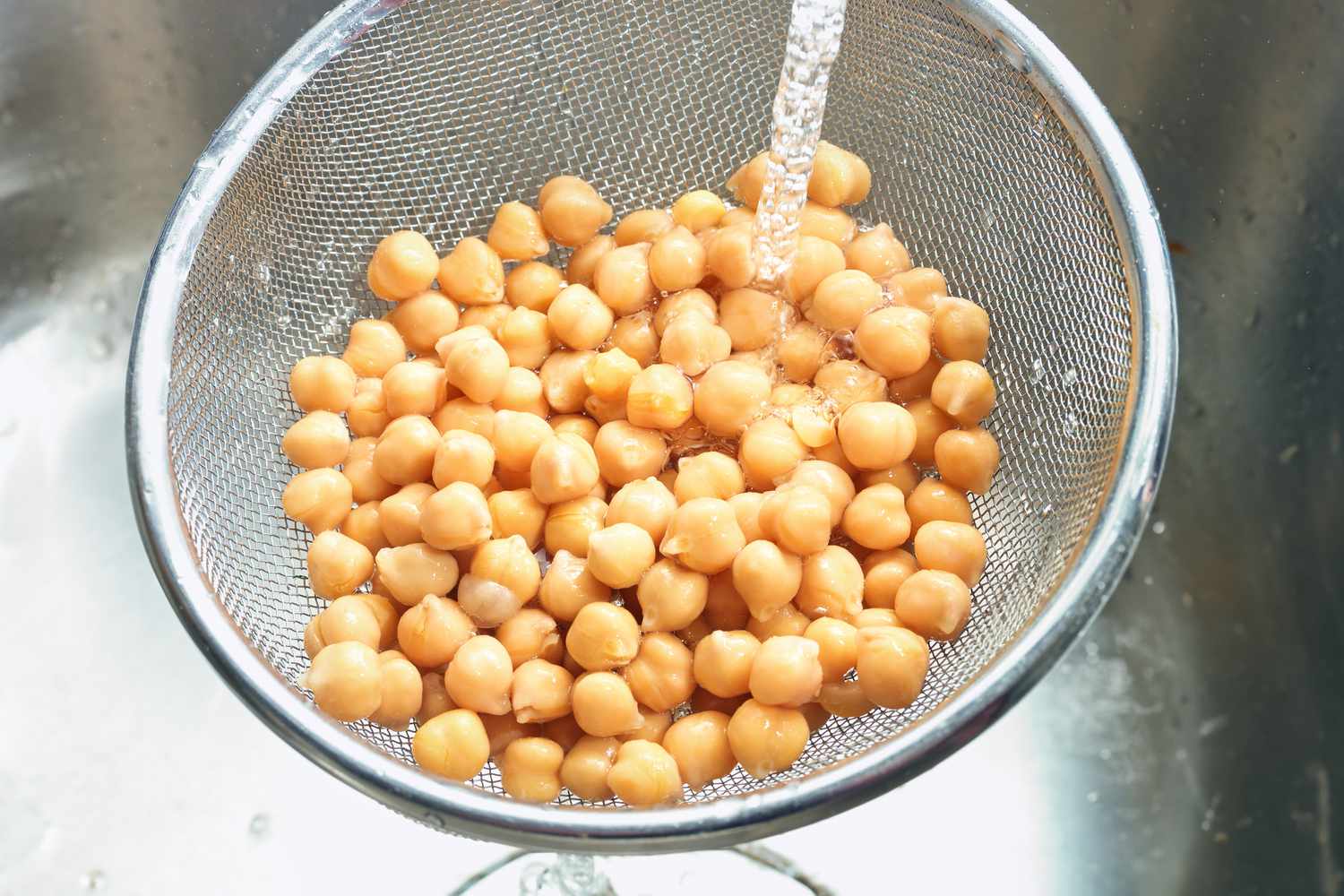:max_bytes(150000):strip_icc():format(jpeg)/Simply-Recipes-Rinse-Canned-Beans-LEAD-OPTION-02-ac6be94e9c5241c2b4d53826c39d6e4d.jpg)
I’m a big fan of canned beans—they’re convenient, affordable, and, most importantly, delicious. At least once a week, I use canned beans and legumes like chickpeas, black beans, pinto beans, and white beans in chilis, stews, salads, and more. And though I’m not always one to follow recipes to a T, when the instructions call for draining and rinsing canned beans, I dutifully dump them into a colander, run cold water over them, and drain them.
It turns out there are several good reasons that recipes call for rinsing canned beans. One commonly known reason is that rinsing can remove up to 41% of the sodium (i.e. salt), according to The Bean Institute, a website managed by the Bean Growers Association of North Dakota and Minnesota.
To learn more about why you should take those “drain and rinse” orders seriously—plus when you might want to skip rinsing—I spoke to Richard LaMarita, chef-instructor of Plant-Based Culinary Arts at the Institute of Culinary Education. Here’s what I learned.
3 Reasons to Rinse Canned Beans
“Rinsing does three things besides reducing salt content,” says LaMarita. Here are three reasons why rinsing canned beans makes sense:
1. It impacts the flavor of your food: “[Rinsing] gives the bean a cleaner mouthfeel and prevents the gel-like coating from altering the flavors of the surrounding ingredients.” This is why you might want to rinse canned beans even if you are making a dish that calls for additional liquid, as tempting as it might be to use the liquid from the can.
2. Get consistent dishes every time: LaMarita says another good reason to drain and rinse beans is so you can consistently replicate dishes. “If you rinse your beans thoroughly, you will have a consistently flavored product, but if you do not rinse them, different amounts of salt will remain in the dish each time you cook it, and it will be hard to cook consistently,” he says. So if you want your chickpea curry or black bean tacos to taste the same every time you make them, go ahead and give those beans a rinse.
3. It may mean you’ll be less gassy: “The reason the juice has a gel-like texture is that it is full of soluble fiber,” says LaMarita. “A significant and sudden increase in fiber consumption can cause bloating and gas. The fiber in the beans might do that anyway, but rinsing the beans helps.” LaMarita adds that for people who normally have a high-fiber diet, the difference between using unrinsed and rinsed beans might not be that noticeable and that symptoms generally go down over time, but if you are cooking for people who don’t eat a lot of fiber, they may feel bloated afterward.
Is It OK To Eat the Liquid?
“The liquid is viscous, and tastes pretty good,” says LaMarita. “It is also perfectly healthful to consume, so from a flavor perspective there is nothing wrong with not rinsing.”
Indeed, unrinsed canned beans can be great from a culinary standpoint in dishes like this white bean soup, where the liquid adds a “starchy richness,” as the recipe developer Sheela Prakash notes.
Draining but not rinsing canned chickpeas can also make for very creamy homemade hummus. Still, LaMarita comes down on the side of rinsing most of the time. “It depends on how much fiber you want to ingest, and who you are cooking for,” he notes.
Simply Recipes / Getty Images
What If You’re Using No-Salt-Added Canned Beans?
If your biggest concern with canned beans is the sodium, you can certainly use no-salt-added or low-sodium canned beans, but LaMarita still recommends rinsing in most cases for the same culinary and gas-reducing reasons you’d rinse canned beans with salt.
Regardless of the amount of salt added to the canned beans, LaMarita says, “You still have to taste them and ask—is it the correct amount [of salt] to create a balanced dish?” and adjust for salt accordingly.
The Takeaway
Even if you are not concerned about sodium, in most cases it’s a good idea to rinse canned beans. Rinsing beans can improve the flavor and texture of the final dish and can help cut down on how much gas they produce. So, for your culinary success and intestinal comfort, give those canned beans a rinse unless your recipe specifically says not to.
